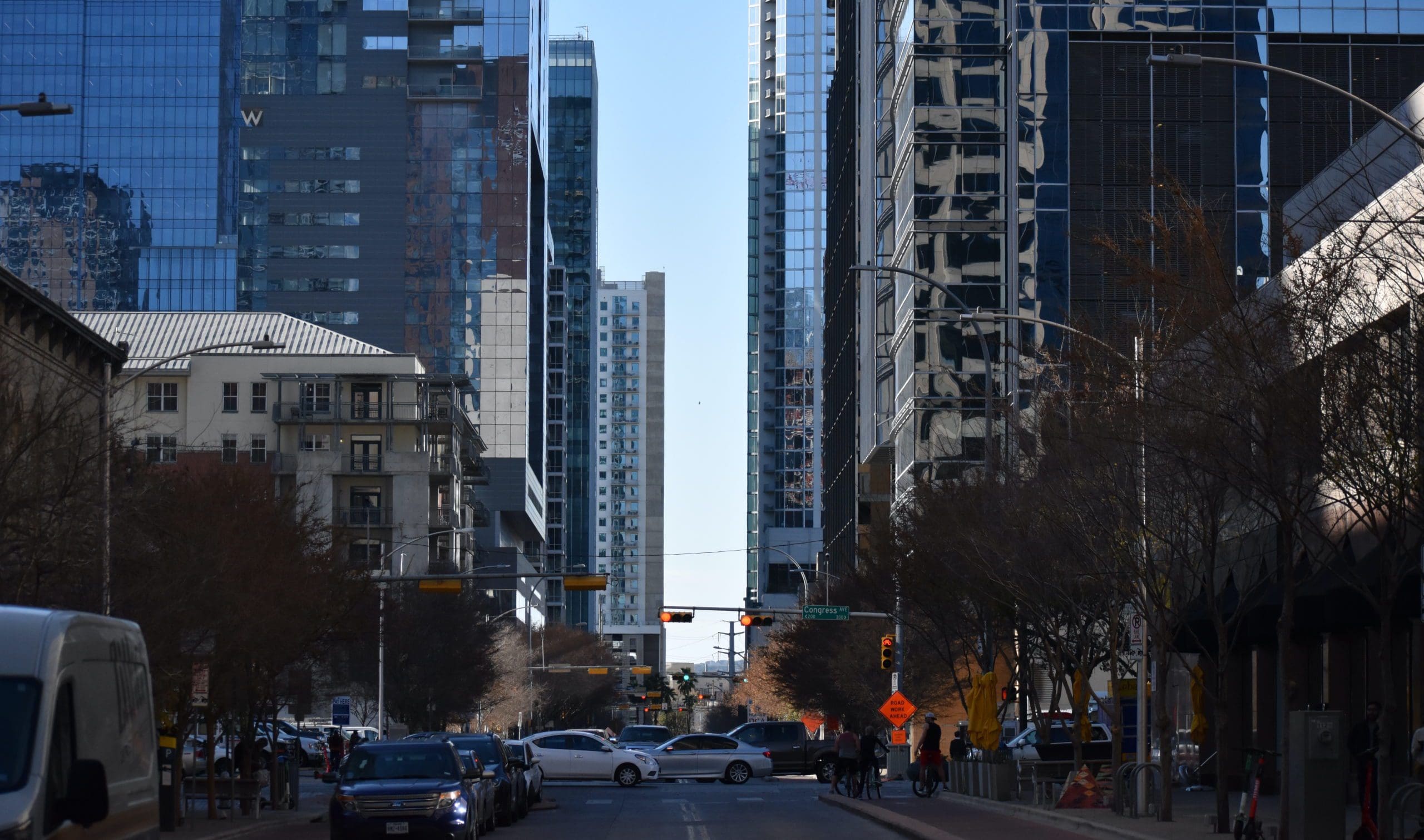If you’re an Austinite making minimum wage, a new study shows you may want to vote different city officials into power very soon, for your own sake.
According to a recent study by Magnify Money, Austin is the most costly major city in the nation for those making minimum wage. To just barely afford the median Austin rent of $1,220, minimum wage employees earning $7.25 an hour would need to work about 200 hours a month—in other words, earn a staggering 143 percent of their normal take-home pay.
In other words, rent alone eats up their entire normal paycheck and then some.
Does simply raising the minimum wage cure this disaster? According to the study, in cities such as San Diego, San Francisco, and Washington, D.C. that have minimum wages from $12-15, rent still consumes 97 to 113 percent of those employees’ paychecks.
Even in the “least expensive” major city on the 34-city list—Chicago, with its $13 minimum wage—rent still eats up 69 percent of a minimum wage paycheck.
What’s causing the unattainable rent? Though there are a variety of factors involved in the cost of living, city officials in Austin have certainly done their part to harm the working class here by plundering their wallets and blocking new housing.
When it comes to taxes, the Austin City Council is now taking 100 percent more cash from the median homeowner than they did just 11 years ago (the average property tax bill in 2008 was $705; now it’s over $1,400). The city council snatching more cash from Austinites doesn’t just affect homeowners, it raises prices on everything: apartment rents, grocery store prices, restaurant bills, you name it. Over the past several years, city hall’s plundering has forced scores of Austinites and beloved iconic small businesses to leave the city and has severely strained those still left.
Furthermore, the city council has continually blocked new housing through its strict construction regulations. A recent report showed city hall’s confusing encyclopedia of costly requirements makes building an apartment complex in Austin nearly 10 times more expensive than in other major cities in Texas, such as Dallas. All of the city council’s extra charges means there is also extra to pay in rent.
And while the Austin City Council isn’t the entire problem (other government entities such as counties and school districts keep raising taxes to skyrocketing levels, as well), the council’s actions have substantially harmed the working class, particularly minimum wage workers. The council has left Austinites with less money in their pockets to afford the higher prices around them—kind of like taking your cake and charging you for it too.
Austinites looking for relief and a better chance at prosperity can start by voting in critical city elections. There are five city council seats up for election in November, and you can find out more information about them here on the city’s website.





